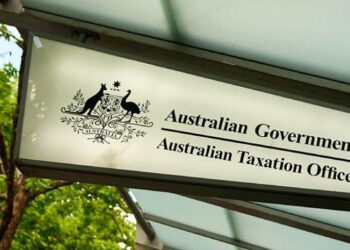The case Etmekdjian and Commissioner of Taxation (Taxation) [2020] AATA 3821 (1 October 2020) involved an accountant who was charged with dishonestly influencing a Commonwealth public official under s135.17 of the Commonwealth Criminal Code. The charge arose out of conduct that occurred in 2009.
The applicant admitted that he backdated three election forms on behalf of a taxpayer in contravention of s139E of the Income Tax Assessment Act 1936. He pleaded guilty at the Local Court hearing on 24 January 2017 and was sentenced on 11 April 2017.
He subsequently appealed the magistrate’s sentence to the District Court. The sentence was varied on appeal on 28 June 2017.
The applicant also engaged with a number of other regulatory and accreditation bodies during 2017 and early 2018, including the Australian Securities and Investments Commission (ASIC) in relation to orders that he be disqualified from managing a corporation and the Tax Practitioners Board in relation to an allegation that he was not a fit and proper person to remain registered as a tax agent.
He also engaged with the professional conduct committee of Chartered Accountants Australia and New Zealand, which considered whether he should be subject to disciplinary proceedings, and the New South Wales Department of Justice in connection with his registration as a justice of the peace.
Section 120 of the Superannuation Industry (Supervision) Act 1993 states that a person will be automatically disqualified in circumstances where they are convicted of an offence against or arising out of a law of the Commonwealth, a state, a territory or a foreign country, being an offence in respect of dishonest conduct.
Section 126B of SISA permits an individual to seek a waiver of his or her status as a disqualified person provided the disqualification was not the product of a conviction for an offence involving serious dishonesty as defined in that section.
The commissioner can decide to issue a waiver under s126D. However, the application for a waiver must be made within 14 days of the person’s conviction.
The commissioner may agree to accept and consider an otherwise compliant application which is filed outside of the time limit where there are exceptional circumstances that prevented the application from being made within that period.
The applicant lodged his application for a waiver more than 14 days after he was convicted of an offence of dishonesty. He asked the commissioner to exercise discretion, but the commissioner refused.
The commissioner assumed the date of conviction to be 11 April 2017, being the date on which the court imposed the sentence rather than the date on which the guilty plea was entered.
The applicant argued that the date of conviction was the date on which the District Court handed down its decision on appeal, which was 28 June 2017.
He also stated that the sentence imposed by the Local Court in February 2017 was stayed pending the outcome of the appeal against sentence. In those circumstances, he argued that the conviction was of no effect until the District Court completed its review of the sentence imposed in respect of that conviction.
In his decision, Justice Bernard McCabe disagreed with the applicant.
Section 63 of the Crimes (Appeal and Review) Act 2001 (NSW) provides for a stay of execution of any sentence imposed by a lower court from the point when an appeal is successfully filed and bail is granted.
“The judgment of Townsend DCJ on 28 June 2017 refers to the applicant being on bail while the appeal against sentence was determined. It follows the execution of sentence was stayed until that date. But the underlying conviction was not in dispute on appeal,” Justice McCabe explained.
“The conviction entered by the Local Court in April 2017 remained undisturbed by the appeal. The date of that conviction is relevant for the purposes of the SISA legislation notwithstanding the appeal against sentence.”
The commissioner pointed out the offence was dealt with summarily by the Local Court, which means the maximum sentence that could be imposed could not exceed 12 months of imprisonment.
“That is important because an applicant cannot ask for a waiver under s126B of SISA if the conviction resulted from serious dishonest conduct — which is defined (relevantly) to include a conviction resulting in a sentence of at least two years,” Justice McCabe explained.
“The applicant did not need to wait for the District Court’s judgment to know whether he was eligible to seek a waiver because he could not be sentenced to more than two years in prison in any event.”
The applicant therefore should have lodged his application under s126B within 14 days of 11 April 2017, he said.
With the appeal not lodged until 23 February, he also noted that the appeal was substantial.
The AAT had to determine where there were exceptional circumstances that prevented the applicant from lodging his appeal within the 14-day period.
The counsel for the applicant pointed out that s126B requires that court documents be included as part of the application, and the definition of court documents includes the transcript. The transcript of the District Court proceedings was not received until 24 January 2018.
Justice McCabe stated that section 120B expressly contemplates delay in obtaining court documents.
“Section 126B(6) says the application should be filed within the time limit and the court documents could be provided when they became available,” he stated.
“I do not think the delay in obtaining that document qualifies as an exceptional circumstance which prevented the applicant from making the application within the fortnight that followed the conviction, even if the application could not be finalised at that point.”
The applicant also referred to the delay involved in dealing with various regulatory authorities.
While the applicant was distracted by these interactions, stated Justice McCabe, it was entirely predictable for somebody in his position.
“He did not need to resolve those interactions before making the application to the commissioner — he simply prioritised those other interactions in a way that allowed them to become a distraction and a burden,” he explained.
Justice McCabe stated that the commissioner has limited power to excuse non-compliance with the time limits for making an application.
“The law requires that I identify exceptional circumstances that prevented the applicant from complying with the 14-day time limit. It is not enough to establish the applicant had a good excuse, or that non-compliance does not result in any harm, or that the applicant has a good case in relation to the substantive issue,” Justice McCabe concluded.


